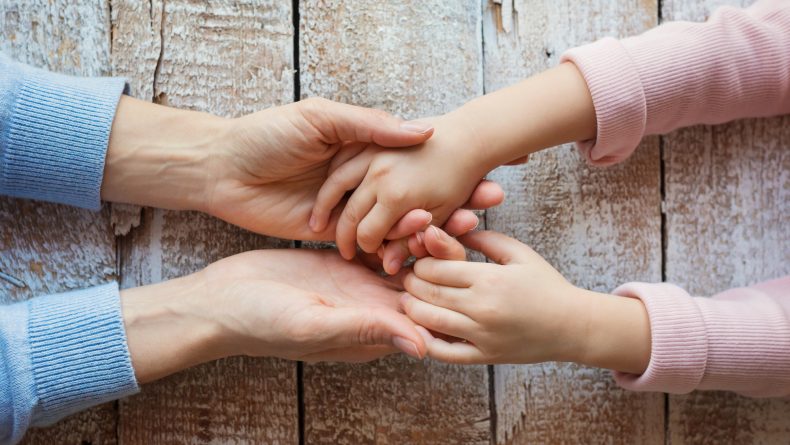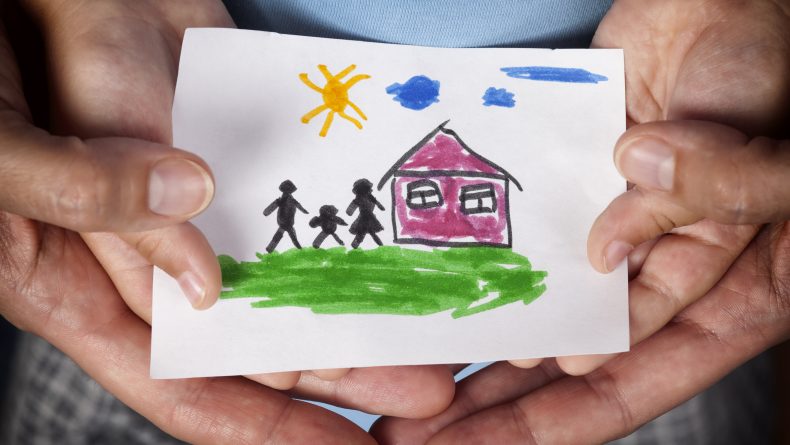Fostering In Japan Part III: The Effect On My Family
The Long Road Toward Building a Home Together
In Part II of “Fostering in Japan,” we followed Melodie and her family through the process of welcoming their foster daughter home and the challenges they went through during the “testing period” of living together. In this final instalment of the series, we introduce the personal effect the decision to foster had on each family member.
My son, Shinji
Shinji and Natsumi didn’t connect right away and before we moved into the new house, they didn’t interact much. However, we took hope during the New Year holidays last year when we were finally allowed to take Natsumi out of the prefecture. We went to a hot spring in a nearby prefecture, and as soon as we got there, both kids put their bags in the room and ran off to explore, chatting the whole time. That night, they put their futons side-by-side and our son told his future sister that he’d actually wanted a little brother, but that since she liked the same Nintendo DS games as he did, he was okay with her coming into our family. In the dark, I listened to their conversation about their schools and whether or not they’d ever met their birth mothers. Finally, I heard Shinji say, “Well, I guess we should go to sleep now.” One of them turned off the light, and my heart was gladdened by what I thought was a blossoming friendship.
Shortly before moving, the two of them began acting like true siblings. The silence and politeness were gone and once while I was on the phone, I heard him teasing her, just like any younger brother would and her angrily retaliating. Out of all of us, Shinji was the only person in the house she called by name (my husband and I were both, until recently, “Hey you!”).
Once we moved into the new house, Shinji was no longer the king of the castle; everyone was equal in the new space. He constantly watched what we did and was quick to point out any unfairness he perceived. Was she getting more juice? Why did she get a carpet in her room? Were we giving her more attention? Suddenly, the house became a battleground for equality. After she stole money from him, Shinji began demanding that we “send her back.” I told him that we don’t do that with people. I told him that I knew he was upset, but she was still settling. We realized that while we were focusing on her adjustment, we may have also needed to spend more time with him.
Suddenly, the house became a battleground for equality.
Because Natsumi had likely never had free access to food before, she was also constantly eating. In his quest for fairness, Shinji began making sure he got his share and rapidly began gaining weight, which, now that things have calmed down, he’s started to lose again. Natsumi kept me at arms’ length for several months, but soon demanded to sleep with me a few times a week. Shinji hadn’t done that for years, but because Natsumi got to, he wanted to, also. So then we had to draw up a schedule in which each kid got two nights a week.
As time went by, things settled down and while both kids are kids and they still fight from time to time, Natsumi shows consideration to Shinji and there are times when they seem to actually enjoy spending time together watching TV or playing games. We hope that they can keep a friendly relationship for life.
My husband
My husband is a very kind man; I described him in the adoption series as being a “kid magnet,” but the shake up caused by bringing Natsumi into the family has been hard on him. When she first moved in and the testing period began, he bore the brunt of it, because instead of staying quiet, he’d fight back. I don’t blame him, though. There are only so many times a day you can be told to “get lost” or “drop dead” and keep your composure. She was also physically violent, kicking, punching, and throwing objects. When my husband tried to stop her, by grabbing her arms or legs, she’d start screaming. I found myself having to come between them, telling him to calm down and to remember her history before coming to us.
When the stealing first started, I could see that he was really upset. He didn’t know how to deal with the problem. He started to look harried and glum. He rarely smiled. We began taking walks on the beach on Wednesday evenings after work, just to talk to each other about our feelings. I had thought that he was dealing with the situation better than I was, but it turned out that both of us were very stressed out. We needed those “dates” to get our stress off our chests.
He rarely smiled. We began talking walks on the beach on Wednesday evenings after work just to talk to each other about our feelings.
Although my husband works as a teachers’ aide in an elementary school special education class and previously worked in a group home for orphaned, at-risk teens, he sometimes has trouble remembering that the kids are forgetful, have a tendency to lose things and are about two years behind their classmates in emotional development. Fortunately, though, we work as a team, so when one of us is feeling stressed out we can lean on the other for backup and take some time out.
He is really trying now, but being Japanese, he is more worried about the kids’ school performance than I am. He keeps telling me that junior high school is much harder than elementary school and that’s when bullying starts. He hopes our children don’t end up not wanting to go to school at all, which is very common for kids with learning disabilities and low self-esteem. As a precaution, I’ve hired a student to tutor both kids once a week and they enjoy working with him. I told them he’ll help them as long as they need it, but my husband is concerned they’ll use him as a crutch and not be motivated to do the work themselves.
Me
When Natsumi moved in, I was fine at first, but I think I was running on autopilot. Not only had our family grown by one, but also we had just moved into a new house and my course load at work increased. However, as the semester went on, and more (unpleasant) things were going on at home, I found myself getting more stressed, depressed and by the end of the semester found myself crying every day, at work or at home. I had just bought a beautiful new house and I didn’t want to be in it. I never knew what to expect the next day — will it be calm? Will there be fighting? I kept up my “tomorrow, we start again” mantra and it was working, in that Natsumi was calming down a little bit each day and trusting me more. She was starting to make demands of me — she wanted to sleep with me and bathe with me. I couldn’t hug her or touch her though — if I did, she’d say, “Gross!” and jump away. She, like Shinji had been all those years ago, had to initiate the physical contact. I longed to hold her and console her, but I couldn’t get near her.
I longed to hold her and console her, but I couldn’t get near her.
Even though things were improving, I found myself waking up in a panic with all the negative thoughts I’d ever had rushing in on me: “You’re a crap parent,” “You don’t know what you’re doing,” “You’re a terrible teacher,” “You don’t deserve what you have.” I found myself suddenly having trouble breathing. At home, all I wanted to do was cry and sleep. In my office, I’d look out my window and think, “Just jump.” Finally, I went to my doctor and got some anti-anxiety medicine.
We went to Canada and even there, I couldn’t relax. Natsumi asked to see her passport while we were in flight and left it on the plane. I freaked out, because I felt she’d done it on purpose (she hadn’t) and that set the tone for me. She didn’t pack a bathing suit and needed one, but by August, all the stores were sold out. The day after we arrived, we were visiting my parents and my mother came to tell me that we needed to go buy Natsumi a bathing suit. I burst into tears and said, “Mom, please don’t make me make any decisions today!” My mother tucked me into bed, I took two anti-anxiety meds and slept the whole rest of the day. Meanwhile my mother found a store with bathing suits left and took Natsumi on her first Canadian shopping trip.
We stayed with friends and I worried every day: were my friends annoyed at us for staying so long? How was Shinji doing at soccer camp? Was he making friends? Was he talking to the other kids? Why was Natsumi spending the whole morning in bed watching Japanese kids’ shows on the iPad? I organized visits to friends, I worried constantly and I finally talked to people who I knew were taking medication for depression. I realized the anti-anxiety meds were a temporary measure and that I would need something more permanent. Luckily, my friends were open to sharing their experiences. I wrote to my GP in Japan and told him I’d be coming to see him about anti-depressants after returning to Japan.
When I came back, I went to see him right away and he gave me a prescription. Since the medicines take two weeks to a month to start working, he recommended I stay on the anti-anxiety medication. The improvement in my outlook has been amazing. I realized that perhaps I’ve been a high-functioning person with generalized anxiety disorder (I remember my first panic attack in high school) and a tendency to depression, but now I feel so much more balanced about everything. All that worry seems like a big fat WTF.
Natsumi and I have a lovely blossoming relationship. I make sure to spend time with her and when she asks me to play or hang out, I do. We’ve been living together for almost eight months now and just two weeks ago I asked to see any photos of herself she might have and she took out all her albums to show me. We have spent time together drawing or coloring pictures and in the bath, she’ll give me kanji tests in the steam on the mirror. We like to make each other laugh and make up songs, too. Recently, she’s been asking me to wash her hair for her. The first time I did, my heart melted when she smiled and told me that the head massage I was giving her felt nice.
Because Natsumi has borderline intellectual functioning, things take longer for her to do. I find myself having to slow down (very hard) and wait for her. If it’s her turn to wash the dishes, I have to sit and talk to her while she does it. She is teaching me to be patient. She is showing me how to be her parent. Since she joined our family, Shinji has become closer to me than he was before, too.
She is teaching me to be patient. She is showing me how to be her parent.
When she started school, she was defiant and fought with the teachers and some classmates, but now she talks openly to her teachers and has several friends. She plays basketball most days of the week and when she’s stressed, takes a basketball out onto the street in front of our house to work off her negative energy. Although she was on medication for ADHD and stress when she first came to us, she’s no longer taking anything. Although she was in the special education class for math and Japanese, she doesn’t go there anymore. She recently showed me a social studies test in which she got a perfect score (I asked for it and posted it on the wall in my office).
She’s come so far. And so have we all — we really feel like a family now.
Advice
My advice for prospective foster parents is to keep in mind that when you first meet your foster child, they might be putting their best foot forward (not intentionally) and behaving in a way that might suggest to you that you are not going to have a hard time of it later. Rest assured, you will have a hard time of it later. Rest assured also that things will eventually calm down. When you start living together, your child might have “episodes” of extreme behavior that seem to come out of the blue, but are triggered by previous experiences or bad memories that you know nothing about. Traditional modes of discipline will be ineffective for about a year until the child trusts you enough to allow you to provide discipline. Finally, children who have spent most of their lives in institution’s brains will have developed differently from children raised by their biological parents.
Below are a few books and blogs that have helped me adapt to parenting and fostering.
- Brain-Based Parenting: The Neuroscience of Caregiving for Healthy Attachment by Daniel A. Hughes and Jonathan Baylin
- When Love Is Not Enough: A Guide to Parenting Children with Reactive Attachment Disorder-RAD by Nancy L. Thomas
- Playful Parenting: An Exciting New Approach to Raising Children That Will Help You Nurture Close Connections, Solve Behavior Problems, and Encourage Confidence by Lawrence J. Cohen
- Attachment Parenting: Developing Connections and Healing Children, Edited by Arthur Becker-Weidman and Shell Becker-Weidman
- “What Foster Parents Wish Other People Knew”
To read Part I of the series click here and and for Part II here. For more information on fostering in Japan, visit Melodie’s personal blog here.
















Leave a Reply